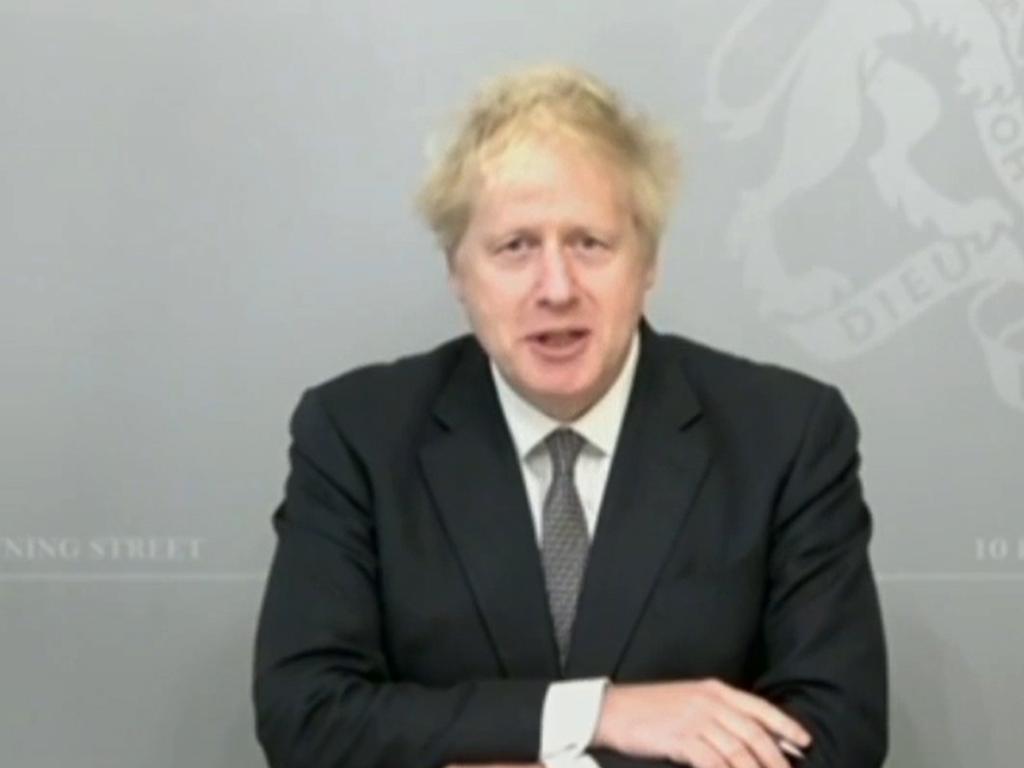Coronavirus: UK, Germany in vaccine speed over safety row
UK credits Brexit for enabling it to fast-track a rollout of the Pfizer BioNTech vaccine but Germany has criticised the haste.

Brexit has been credited with enabling the United Kingdom to fast-track a rollout of the Pfizer BioNTech vaccine as early as Monday – the first country in the world to begin mass vaccinations for the coronavirus – but it has drawn swift condemnation from German politicians amid accusations of speed over safety.
UK Health Secretary Matt Hancock told Times Radio that the country could “move faster” to approve the vaccine because it was no longer part of the EU.
“Until earlier this year, we were in the European Medicines Agency. But because of Brexit, we’ve been able to make a decision to do this based on the UK regulator … and not go at the pace of the Europeans who are moving a little bit more slowly,” Mr Hancock said.
Across the Channel there appears to be a delay so that all 27 member states are prepared for a united vaccination campaign.
We're preparing now so we are ready to roll out vaccines as soon as they have gone through all the safety and regulatory checks. pic.twitter.com/4Kwy9qKEwL
— Boris Johnson (@BorisJohnson) November 30, 2020
The German health minister Jens Spahn said Germany wanted all European countries to be able to roll out the vaccine at the same time and to create an atmosphere of confidence in the vaccine. This was despite the European regulator having begun studying the vaccine – developed in Germany by a Turkish immigrant husband and wife team – several weeks earlier than the UK.
“We have member states, including Germany, who could have issued such an emergency authorisation if we’d wanted to,” Mr Spahn said. “But we decided against this and what we opted for was a common European approach to move forward together.’’
Mr Spahn explained the EU delay was to create confidence.
“The idea is not that we’re the first, but the idea is to have safe and effective vaccines in the pandemic and that we can create confidence, and nothing is more important than confidence with respect to vaccines,” he said.
In Australia, the regulator Therapeutic Goods Administration is expected to grant approval by the end of January. Health minister Greg Hunt said he expects the first Australians to begin receiving the first batches of Australia’s order of 10m doses in March.
The EU regulator, European Medicines Agency (EMA), defended its relative caution, insisting it had a more thorough vetting process of the vaccine than the UK.
The EMA said it would decide by December 29 whether to approve the Pfizer BioNTech vaccine.
German MP Peter Liese, a member of Angela Merkel’s ruling party even claimed the UK’s regulatory approval was “problematic’’ and recommended “that EU Member States do not repeat the process in the same way’’.
Tension between Germany and the UK about the authorisation of the vaccine rollout began earlier in the day when UK business minister Alok Sharma tweeted that Wednesday was “the day the UK led humanity’s charge against the disease” and hailed the UK as the first country to order the Pfizer BioNTech vaccine.
Germany’s ambassador to London Andreas Michaelis retorted: “Why is it so difficult to recognise this important step forward as a great international effort and success? I really don’t think this is a national story. In spite of the German company BioNTech having made a crucial contribution, this is European and transatlantic.”
UK Prime Minister Boris Johnson referred to Edward Jenner’s vaccine developments in the 18th century that has helped the scientists perform a “biological jujitsu’’ turn the virus on itself to form a vaccine. He said: ”We’re no longer resting on the mere hope that we will return to normal next year, in the (northern hemisphere) spring, but rather the sure and certain knowledge that we will succeed and together reclaim our lives and all the things about our lives that we love.”
Pfizer was transporting the first batches of the vaccine in super cold storage to the UK for distribution beginning next Tuesday. In the UK there were 16,170 new cases of coronavirus announced this Tuesday and 648 new deaths of people who tested positive to the virus in the past 28 days.
While there was some concern about the distribution of the vaccine to care homes because of the need for the minus 70 degree storage conditions, the first to be vaccinated will be those conducting the vaccinations and care home workers most exposed to the virus. But BioNTech founder Ugur Sahin said the vaccine can be held in fridge conditions for five days, allowing batches of the vaccine to be given in various settings. The first batches will arrive from a Belgium manufacturing plant over the weekend, contained in freezers colloquially known as “pizza boxes’’.
The UK has a priority order of rolling out the vaccine which starts with care homes, then providing for the elderly, working down to younger age groups.
UK’s regulator chief executive June Raine said: “Everybody can be confident that no corners whatsoever have been cut,” adding that the certification process was no different to counterparts in the US and EU.
“Our expert scientists and clinicians have worked round the clock, carefully, methodically, pouring over tables and analyses and graphs on every single piece of data, hundreds, over a thousand pages of data and, absolutely critically, analysing the pre-clinical evidence, the clinical trials, the manufacturing and quality controls, and then down to the final sampling,” she said.
The UK has ordered 40m doses of the vaccine which requires two jabs, 21 days apart.
Professor Sir Munir Pirmohamed, chair of the UK’s Commission on Human Medicine Expert Working Group, said the data analysis showed there had been no serious adverse reactions to the vaccine among more than 20,000 trial volunteers who received it.
He said the data showed the vaccine is 95 per cent effective, and is effective in all the groups that were given the vaccine – regardless of age, sex, race, or country. Prof Pirmohamed said people will be immune seven days after the second dose and that partial immunity developed after day 12 of the first dose.
Prof Primohamed added the side effects of receiving the vaccine were ‘’mild and short lasting for a day or two’’, akin to receiving any other vaccine.
A snap YouGov poll showed that 20 per cent of the British population was not confident in receiving the vaccine, which will not be made mandatory.
But England’s deputy chief medical officer Jonathan Van Tam said: “But you have to take the vaccine if it is offered to you. Low uptake will almost certainly make restrictions last longer.”
He added: ”I don’t think we’ll eradicate coronavirus ever, I think it’s going to be with humankind forever.
“I think we may get to a point where coronavirus becomes a seasonal problem … possibly (like the) flu is the kind of way we would learn to live with it.’’








To join the conversation, please log in. Don't have an account? Register
Join the conversation, you are commenting as Logout